Fans of Below Deck on Bravo TV have been commenting on Twitter and Facebook about the British accent that Kat and Sam continually use. No, I’m not referring to the Rhode Island accent Kat plays up when drinking (something I personally find to be quite funny), but rather, when she jokingly mimics a British person, like when telling Johnny Eyelash and friends in episode 1 to “please exit the vehicle, keeping [their] hands and cocaine to [themselves].”
I’m sure working alongside Chef Ben, who is a Brit, it’s contagious…
It must be contagious for Sam as well, because she continually uses British intonation, injecting a high-rising inflection when she’s asking questions.
does sam have a british twang. what is going on. #belowdeck
— The Bravoholic (@thebravoholic) July 16, 2013
Why does Sam ask questions with a British accent? #BelowDeck
— Amy Winton Ray (@amywintonray) August 3, 2013
While it’s slightly annoying on the show, at least Sam hasn’t been shown using the word “cheers” for “thank you” (a pet peeve of mine when used by Americans, whether said verbally or as a sign-off to email/text correspondence).
Either way, it got me thinking about a Stew Confession that I include in my book, The Insiders’ Guide to Becoming a Yacht Stewardess. My story isn’t necessarily related to the use of accents onboard; however, I have to admit that after a year living abroad between London, England and Edinburgh, Scotland during my pre-yachting days, and then again working aboard a yacht where I was the only American amid an international crew, I quite often found myself unintentionally picking up on their accents, mannerisms, and slang. In fact, at one stage I believe I even referred to myself as a “septic tank” (Cockney & Aussie rhyming slang for a yank—an American)… But I digress, for that isn’t the Confession that comes to mind.
Rather, in my book, I addressed this issue from another angle, and that’s with regard to a question I often get from people curious about “this yacht stewardess job” I held. They want to know how it is the superyacht industry gets away with referring to its female, interior crew as “stewardesses.”
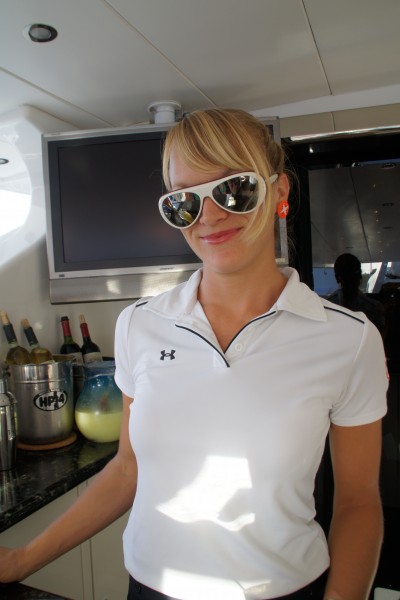
A yacht stewardess (yes, stewardess) at work.
Photo Credits: Suki Finnerty of YachtingToday.TV
The following excerpt from The Insiders’ Guide to Becoming a Yacht Stewardess: Confessions from My Years Afloat with the Rich and Famous is the answer I give (hint: it’s all about how you pronounce it):
![]()
I Must Confess…
I chose to use the more formal, British pronunciation for my new job title of “Stewardess.”
This one is for my female, American readers.
Stewardess: Yes, this is the job title that was banished from airline-industry terminology during the political-correctness movement back in the ’90s (a move toward “equality vocabulary” is, I believe, what they termed it). Stewardesses, as we once called them, became known by the more gender-neutral, and for some, more professional-sounding title of: Flight Attendants.
Knowing this, many of my American friends, when I told them I was a stewardess on a yacht, would come back at me with comments such as, “Do they really call you a stewardess?” or “Wow, that’s an outdated term. Shouldn’t it be something more P.C., like ‘yacht attendant,’ instead?”
I would then have to point out to my interrogators: “Did you not hear how I pronounced it? I did not say ‘STOO-ar-diss,’ but rather, ‘stoo-ar-DESS’ (with emphasis on the FINAL, not the first syllable, and also pronouncing it “ess”—rhyming with “dress”—not “iss”)…‘ar-DESS’…‘DESS’…like a British person would say it.”
You’ll quickly learn that many of the terms in yachting are dictated by British standards, as is the maritime industry on the whole. Beyond nautical terms, the more regal and formal-sounding (at least in my opinion) British vocabulary is even favored in a yacht’s interior department.
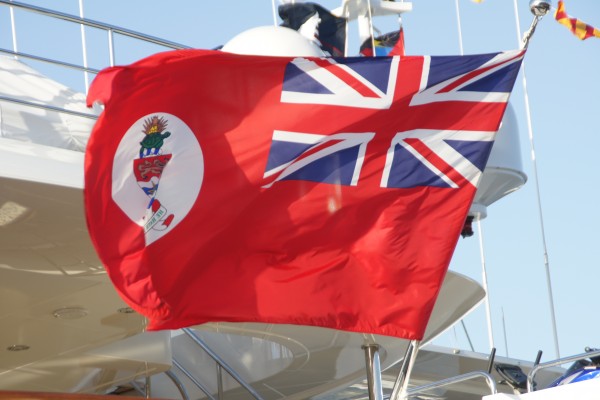
The official flag of the Cayman Islands, a British Overseas Territory and the word’s leading offshore luxury yacht registry. Red is for use at sea, based on the British blue & red ensigns.
Photo Credit: Suki Finnerty of YachtingToday.TV
Some other examples are the words “rubbish” to mean “trash,” and therefore, “rubbish bin” for “trashcan,” “biscuit” instead of “cookie,” “petrol” and not “gasoline,” “wardrobe” over “closet,” “serviettes” as opposed to “napkins,” “tea towel” and not “dish towel,” “whilst” instead of “while,” and my all-time favorite: “knickers” for what Americans refer to as “underwear.”
So there you go: Once you land your first job in this industry, if you are an American (and female), you tell your friends back home that you are a “stoo-ar-DESS,” whose job it is to “empty rubbish bins, serve biscuits, tidy wardrobes, iron serviettes, fold tea towels, and hand-wash expensive knickers whilst working aboard a luxury megayacht, which is fueled by petrol,” and which, “no, is NOT a cruise ship!”
Now, tell me that doesn’t sound prestigious?
![]()
Learn more about getting started with a career in the luxury yachting industry by ordering your copy of Julie’s book today.
Not ready to buy yet? Cool. Simply download Chapter 1 for free by clicking the book cover below:
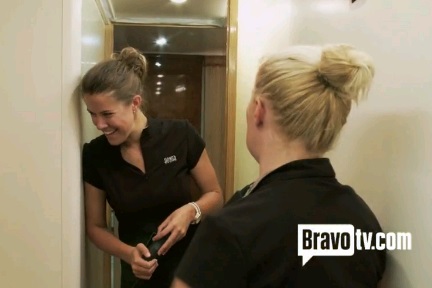
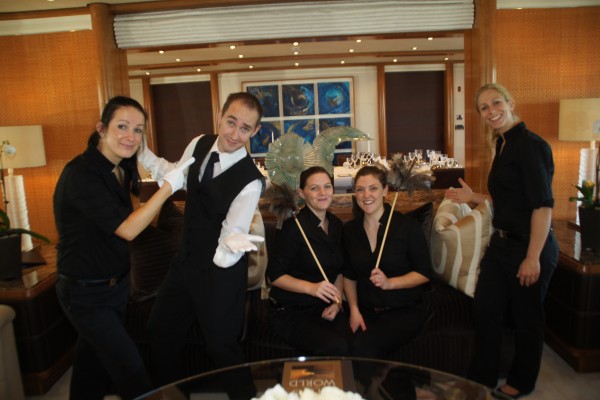

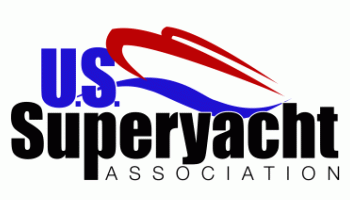

I should also probably mention this additional excerpt from Chapter 4 of “The Insiders’ Guide,” where I address vacuuming. (Er, I mean “Hoovering.”):
“As with the pronunciation of the job title stewardess, the British way of doing things tends to prevail in the yachting world. Therefore, vacuuming is most often referred to as hoovering. ‘Hoover,’ in the United Kingdom, is like using the brand name Kleenex for tissue, or Band-aid for bandage; they’ve adopted the manufacturer name of the most popular brand. In yachting, you’ll hear stews, including the American ones, using this word all the time, as both a noun and a verb: ‘Have you seen the hoover?’ or ‘I need to hoover the room.'”
So if you are looking to becoming a yacht steward/ess, get ready to hoover it up! ;)